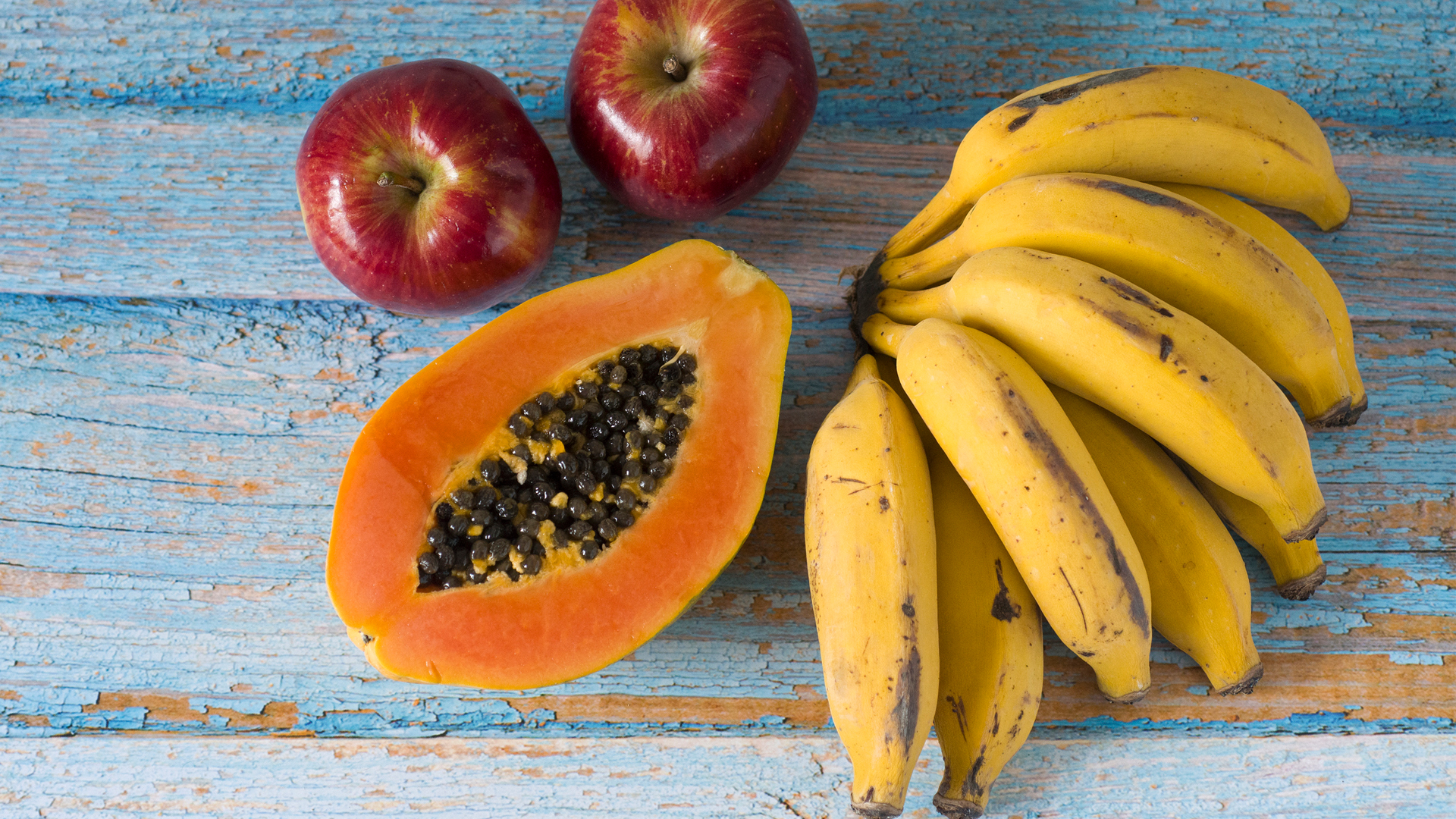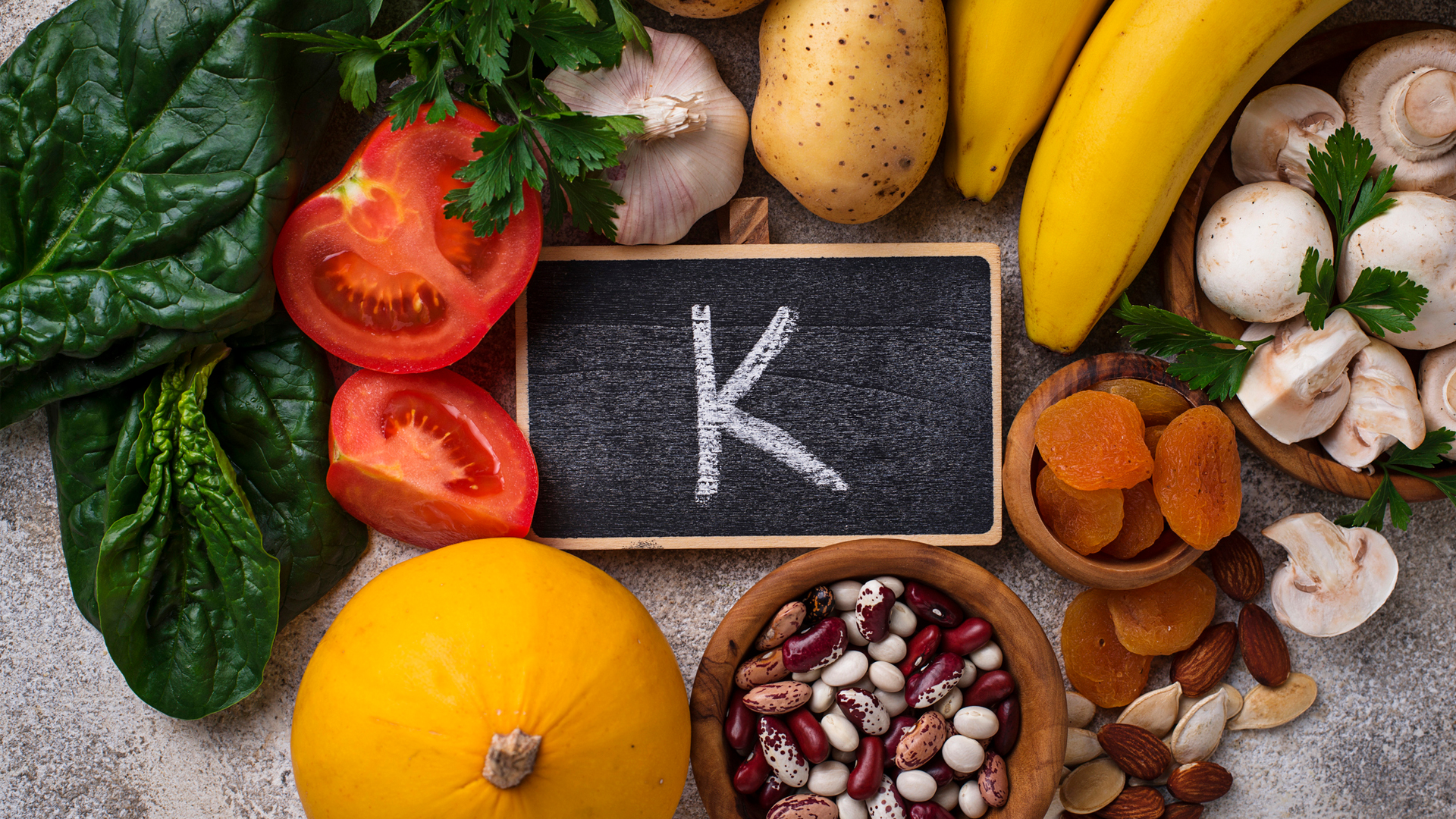What is potassium good for?
It's an essential mineral that we can only get from our diet — but what is potassium good for?

Get the world’s most fascinating discoveries delivered straight to your inbox.
You are now subscribed
Your newsletter sign-up was successful
Want to add more newsletters?

Delivered Daily
Daily Newsletter
Sign up for the latest discoveries, groundbreaking research and fascinating breakthroughs that impact you and the wider world direct to your inbox.

Once a week
Life's Little Mysteries
Feed your curiosity with an exclusive mystery every week, solved with science and delivered direct to your inbox before it's seen anywhere else.

Once a week
How It Works
Sign up to our free science & technology newsletter for your weekly fix of fascinating articles, quick quizzes, amazing images, and more

Delivered daily
Space.com Newsletter
Breaking space news, the latest updates on rocket launches, skywatching events and more!

Once a month
Watch This Space
Sign up to our monthly entertainment newsletter to keep up with all our coverage of the latest sci-fi and space movies, tv shows, games and books.

Once a week
Night Sky This Week
Discover this week's must-see night sky events, moon phases, and stunning astrophotos. Sign up for our skywatching newsletter and explore the universe with us!
Join the club
Get full access to premium articles, exclusive features and a growing list of member rewards.
Potassium is an essential mineral that plays many important roles in the body, from helping keep the heartbeat at a steady rhythm to maintaining normal fluid levels inside cells. Scientists are also learning more about the role potassium may play in improving cardiovascular health, controlling blood sugar and even maintaining bone health.
Many people will have heard that bananas are high in potassium, but this mineral is also available in a variety of other foods, including dried apricots, chicken and beans.
Read on to discover why we need this mineral and what happens when we don't get enough.
What is potassium?
Potassium is an essential mineral found in many different foods. It's also an electrolyte — a particle that carries a small electrical impulse or charge that helps the cells, nerves and tissues in the body to function.
According to the National Institutes of Health (NIH), the body needs potassium for almost everything it does. Humans cannot produce potassium themselves, so it's important to get enough potassium in the diet.
What does potassium do for the body?
Potassium plays a critical role in how well the body functions. Yasi Ansari, a registered dietitian in California and a spokesperson for the Academy of Nutrition and Dietetics, told Live Science that it primarily helps with muscle contractions, blood pressure management and regulating our hydration status — mainly fluid levels within our cells.
"It also supports overall cardiac function and bone health," she said.
Get the world’s most fascinating discoveries delivered straight to your inbox.

Yasi Ansari is the owner of a consulting practice specializing in nutrition for sports performance and wellness. She also works with adolescents diagnosed with eating disorders at the University of California, Los Angeles (UCLA). Ansari graduated from UCLA and earned a graduate degree from California State University, Northridge, in family and consumer sciences (emphasis in nutrition and dietetics).
Cardiovascular health
Low potassium levels are linked to cardiovascular problems such as high blood pressure and stroke, but until recently health experts didn't understand why.
However, a 2017 study published in the journal JCI Insight found that in mice, low levels of potassium in their diet resulted in a buildup of calcium in the muscle cells within the arteries, causing them to harden and reduce blood flow. The researchers also found that this process could be reduced by increasing potassium intake.
However, this was an animal study so the findings don't necessarily translate to humans, but it does provide one theory as to how low potassium levels may be linked to cardiovascular issues.
Kidney stones
According to the NIH, a diet low in potassium increases the risk of calcium building up in the urine. This is because a low potassium intake impairs calcium reabsorption within the kidneys. Too much calcium can lead to a buildup of crystals forming in the kidneys — also known as kidney stones.
Blood sugar control and type 2 diabetes
Around 1 in 10 Amercians have diabetes, according to the Centers for Disease Control and Prevention (CDC), of which approximately 90% to 95% have type 2 diabetes.
Scientists have been looking at the role potassium plays in helping to regulate blood sugar levels. A 2017 study published in The American Journal of Clinical Nutrition found that low potassium levels may be a predictor of type 2 diabetes, particularly in African Americans. However, more research is needed to understand how potassium can control blood sugar and its role in reducing the risk of type 2 diabetes.
Bone health
A higher potassium intake has also been associated with increased bone density and bone strength. While researchers are unclear as to why, one theory is that potassium helps to neutralize acids that naturally occur when eating animal protein and sodium, according to the NIH. Without adequate potassium to neutralize these acids, calcium is pulled from the bones to do the job instead, and without enough calcium, bones become weaker.
Muscle contraction
Electrical signals released by potassium help the muscles to contract properly without causing cramping, weakness or pain, according to the Mayo Clinic. They also regulate the contractions in the body's most important muscle — the heart — resulting in a heartbeat. Low potassium levels. known as hypokalemia, can increase the risk of abnormal heart rhythm, which can be life-threatening.
- Related: Why do I get foot cramp when I swim?
How much potassium does the body need?
There is currently no recommended dietary allowance (RDA) for potassium, but there is an adequate intake (AI). These are established by expert committees of the National Academies of Sciences, Engineering and Medicine. Ansari said that AI gives an idea of the approximate amount people should consume each day when there isn't enough clinical evidence to establish an RDA.
According to the NIH, adult women aged 19 years or older have an AI amount of 2,600 micrograms of potassium per day. Those who are pregnant or breastfeeding require slightly more — 2,900 mg and 2,800 mg, respectively. Men have a potassium AI of 3,400 mg.
For those with a medical condition, or who are taking medication that affects how much potassium they excrete through urine, the above recommendations may not apply. Instead, speak to a healthcare professional about how much potassium you need.
According to Ansari, any of the following conditions can indicate that potassium intake may be too low:
- Muscle cramping and spasms
- Kidney stones
- Decreased bone health
- Elevated blood pressure
- Heart palpitations
- Muscle weakness and fatigue
What are the best sources of potassium?
Lots of foods contain potassium, including many fruits and vegetables. Eating a variety of fruits and vegetables every day should be enough to get all of the potassium the body needs.
"If a food source has 20% or more potassium per serving on a label it will be considered a 'high' source of potassium," Ansari said.
The Academy of Nutrition and Dietetics, Harvard Health and the NIH suggest the following foods as good sources of potassium:
- Dried fruit, including apricots, prunes and raisins
- Bananas, oranges and cantaloupes
- Leafy greens, such as spinach, beet greens and broccoli
- Potatoes and squashes
- Tomatoes
- Beans and lentils
- Chicken and salmon
- Nuts, such as cashews and almonds
- Orange juice, low-fat milk, fortified plant-based milk and coconut water

Potassium deficiency is rare, so taking potassium as a supplement isn't necessary unless someone has a specific medical condition, Ansari said.
"Talk to a dietitian and your physician to ensure supplementation is appropriate for you," she said. "It may be better to eat more potassium-rich foods, as potassium supplements tend to have less potassium than whole foods. Plus, taking in more potassium than you need can cause side effects."
These could include heart palpitations, shortness of breath, chest pain, nausea or vomiting.
Joanne Lewsley is a UK-based freelance writer and editor, covering health and lifestyle news and features. She mainly creates evidence-based health and parenting content and has worked with a number of global sites, including BabyCentre UK, Medical News Today, Fit & Well, Top Ten Reviews, and Yahoo!
 Live Science Plus
Live Science Plus











